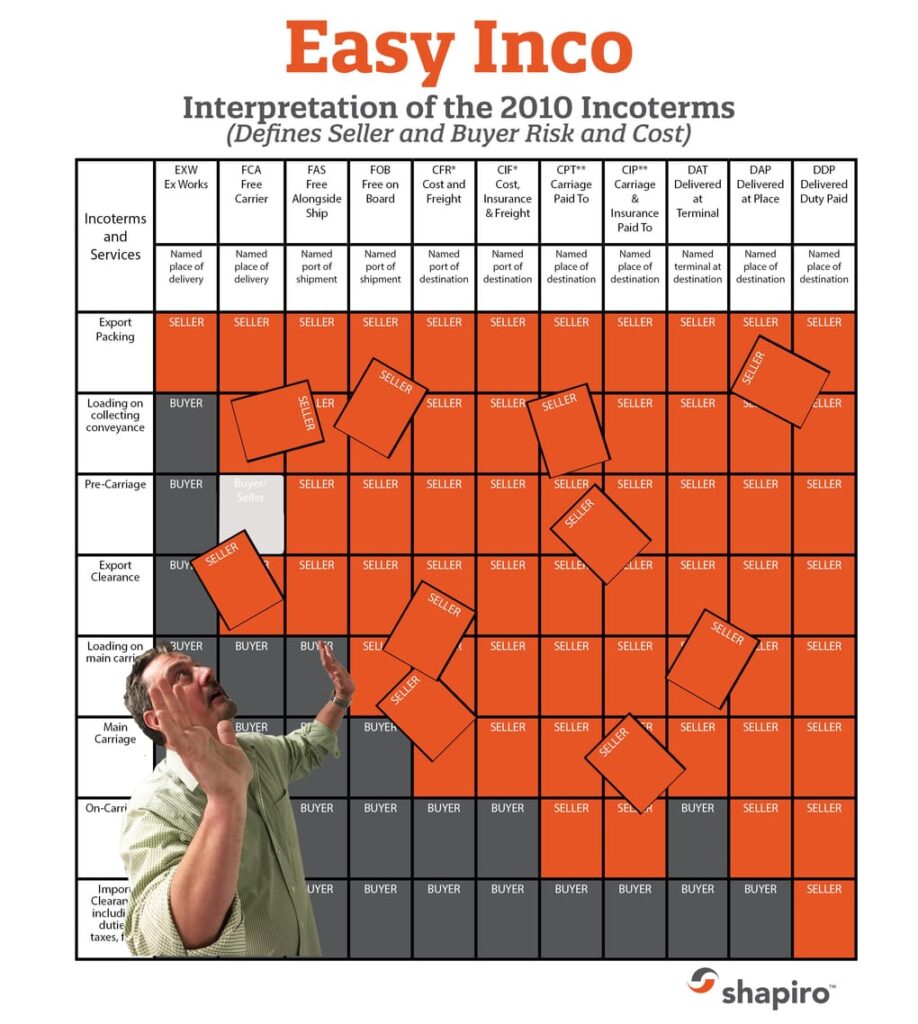Five Updated Reasons You Should Buy Your Imports on FOB Terms

Due to the popularity of The Nine Reasons that Buying Your Imports on CIF Terms is Too Good to Be True blog, we wanted to release an update covering why you should buy your imports on FOB terms.
At first glance, it can be tempting to buy on a CIF (Cost, Insurance & Freight) basis. You don’t have to negotiate rates or coordinate with a freight forwarder. All you really have to do is sit back and wait for your cargo to arrive, right? Not necessarily. Unfortunately, once you dig a little deeper, you’ll find that shipping CIF often means you’ve basically lost control of your supply chain. Here are five excellent reasons you should ship FOB:
1.FOB allows you to vet your freight providers to ensure that they are financially sound, legitimate companies.
CIF: If your supplier is arranging the freight, they’ll likely choose a carrier who will meet requirements but at the cheapest possible rate. This means you could find your cargo seized by the steamship line when a shady, bankrupt provider fails to pay the ocean freight.
2. FOB allows you to automate tracking and booking management data which greatly improves the quality of information and cargo control available to you.
CIF: Will a vendor selected by a supplier really tell you when critical production dates are missed by that supplier? Will the forwarder really give the truth when bookings are rolled or carriers choose longer transit routings? When you pay for the freight, you name the business rules and KPIs your forwarder must adopt. You design your system based on your business needs, and you create transparency throughout your supply chain.
3. FOB allows you to avoid unnecessary “document transfer” fees if you use the same party to serve your forwarding and Customs clearance needs.
CIF: Supplier-controlled shipments often have two or three co-loaders in the mix. This not only increases unnecessary fees, it creates unneeded complexity and the opportunity for poorly executed steamship and port releases. Many CIF importers are unpleasantly surprised by unexpected charges on cargo arrival. Don’t make the mistake of calculating freight costs on ocean base rates without looking at ALL costs. Saving a few bucks on base freight is hardly worth the potential, additional downstream costs and liabilities.
4. FOB allows you to concentrate your freight purchase with a small number of hand-selected partners.
CIF: Why let your supplier make extra money on freight when you can control your own goods, choose the best way to move those goods, demand metrics and accountability from your forwarder, AND receive a competitive rate?
5.FOB allows you to adjust to changing circumstances with much greater agility.
CIF: If your customer requires goods sooner than expected… if a hurricane alters the ports of unloading… if an ice storm shuts down Chicago… if port congestion slows overall transit…how are you going to modify and adjust your logistics plan on the fly when the freight is paid at origin? The financial relationship is thousands of miles away; the management staff who can effect change are thousands of miles away, and frankly, your chances of making critical decisions to deal with unexpected change is…. yes, thousands to one.
It is a fact that 99% of all importers who ship more than 500 containers a year control their freight by purchasing on FOB terms. It has always been widely understood that these firms convert to these purchasing terms once they achieve critical mass. It is our opinion that these firms made it to 500 shipments and well above because they controlled their own business destiny by controlling their freight under FOB terms.
Shameless plug: If you have questions or fears about converting to FOB terms, please reach out! I happen to know a very reputable, financially strong, and operationally nimble freight forwarder with some of the most powerful and flexible technology tools on the third rock from the sun.

Mark Cooper says:
Good advice. I’ve preached this for years. The other side of the buy FOB coin is sell CIF. A savvy shipper (with a good traffic manager) can maintain control of the goods to destination and also create another profit center.
perez says:
i really agree with this article and would surely recommend the use of FOB to CIF because it is more cost friendly and secure.